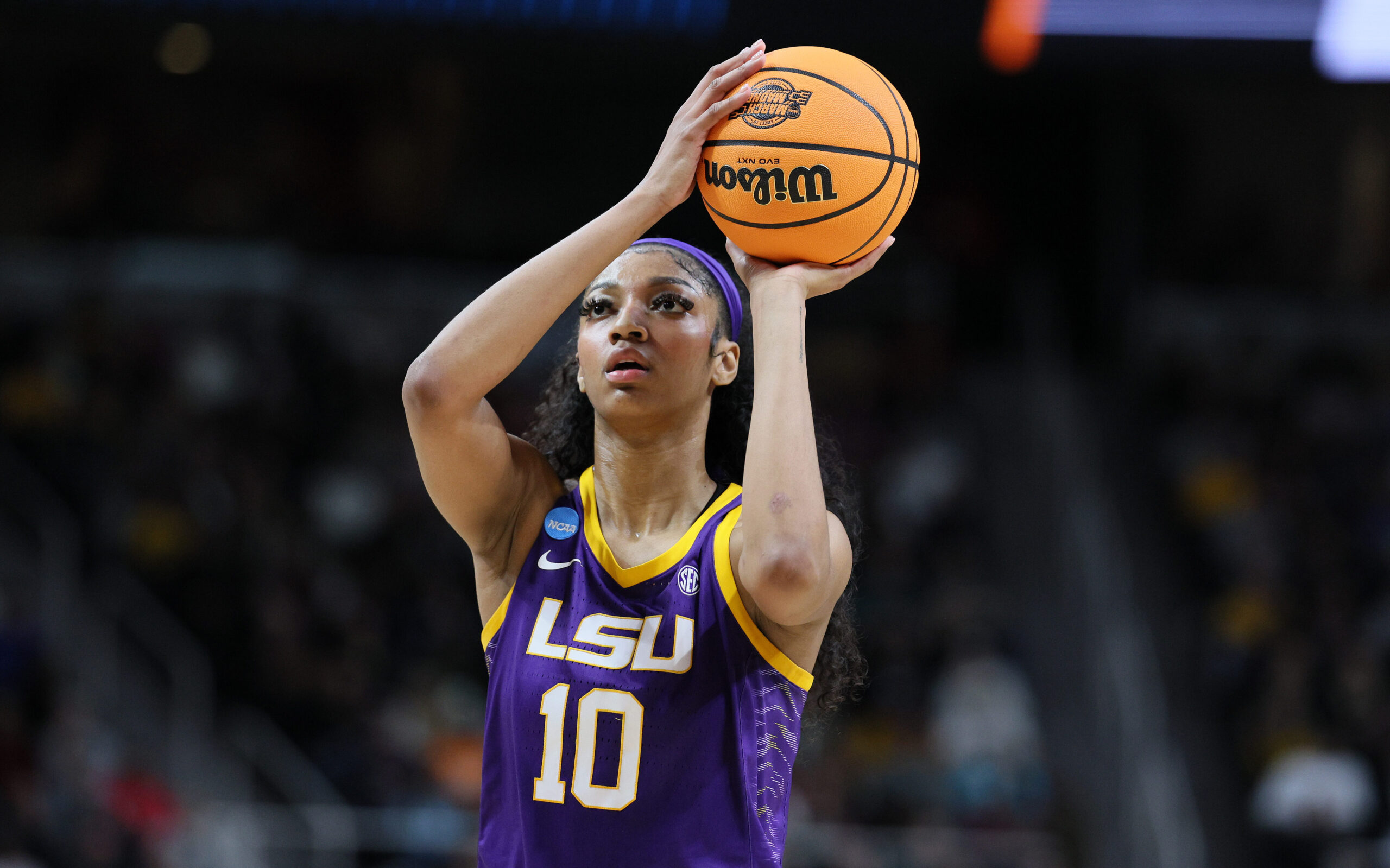Following an alleged incident of verbal fan abuse against WNBA superstar Angel Reese, the WNBA has officially announced that they could not substantiate a report of racist fan behavior at an Indiana-Chicago game in Indianapolis earlier this month.
The WNBA’s statement read: “We have investigated the report of racist fan behavior in the vicinity of the court during the May 17, 2025, Chicago Sky at Indiana Fever game. Based on information gathered to date, including from relevant fans, team and arena staff, as well as audio and video review of the game, we have not substantiated it.”
The verdict has invigorated some to compare Reese to the likes of Bubba Wallace and Jussie Smollett, claiming she faked a hate crime for attention. Others, mostly Black women, empathize with the sentiment of not being protected when the world dehumanizes you. Here’s a deeper look.
Who Is Angel Reese?
Chicago Sky forward Angel Reese is a legendary basketball player known for her prowess on and off the court. Born on May 6, 2002, in Randallstown, Maryland, she rose to fame as a star player at Louisiana State University, playing a pivotal role in leading the LSU Tigers to a national championship in 2023. Her standout performance earned her national recognition, including the NCAA Final Four Most Outstanding Player award.
Nicknamed the “Bayou Barbie,” Reese is celebrated not only for her athletic talents, but also for her unapologetic confidence. She’s quickly become a cultural icon during her time in the WNBA, particularly among young fans. She’s known for embracing her authenticity and using her platform to speak out on issues, particularly surrounding race.
Angel Reese Racism Investigation
On May 17th, 2025, during a WNBA game between the Chicago Sky and the Indiana Fever, allegations emerged that Reese was subjected to racist remarks from fans at Gainbridge Fieldhouse. The alleged incident occurred following a flagrant foul by Indiana’s Caitlin Clark on Reese, heightening tensions on the court. In response, the WNBA launched a thorough investigation into the claims.
Examining audio and video footage while interviewing fans, team personnel, and arena staff, the WNBA eventually announced that it could not substantiate the allegations of racist fan behavior directed at Reese. Both Reese and Clark addressed the situation, emphasizing that no matter what, racist behavior has no place in the sport. Reese has been vocal about the broader issue of racism in women’s basketball, hoping to platform the ongoing challenges faced by Black female athletes, including online harassment and double standards in media coverage. She has also criticized the media for not taking earlier action to address these kinds of issues and protect the Black female athletes they profit off of.
The History Between Angel Reese and Caitlin Clark
To understand the intensity that surrounds Angel Reese and Caitlin Clark on and off the court, you have to go back to the players’ college years.
Reese and Clark became two of the most talked-about figures in women’s college basketball during the 2022–2023 NCAA season. Both were dominant players. Reese led LSU and Clark Iowa. Their paths inevitably collided in the 2023 NCAA Women’s Championship game. LSU’s victory over Iowa wasn’t just a win on the scoreboard. It became a cultural flashpoint.
During the game, Reese famously mimicked Clark’s earlier “you can’t see me” gesture and pointed to her ring finger in celebration. The moment instantly went viral, sparking nationwide debates about sportsmanship, race, and the double standards faced by Black female athletes. Reese was both celebrated and harshly criticized for the gesture. She was criticized in ways Clark never was when she performed similar taunts earlier in the tournament.
For many, the backlash Reese faced exposed the racialized scrutiny placed on confident, competitive Black women. It also turned her into a symbol, unintentionally, for a broader fight around equity in women’s sports. Clark, for her part, has maintained that there was no bad blood between them and has consistently downplayed media narratives pitting them against each other.
Social Media Reacts
Social media’s reaction to the conclusion of the investigation has been split. Many found it an empowering opportunity to drag Reese’s credibility, while others have come in defense of the athlete.
